“Girl, I heard you speak for 10 minutes and I knew they couldn’t keep you locked up in the university.”
This comment, delivered with enthusiasm by a social worker at a continuing education seminar that I offered on trauma remains the compliment I treasure the most. I entered my first Ph.D. program in 2006 and literally went running from the building that housed that counselor education school. My mind could never be safe in a place that oppressive to creativity and so far removed from the actual workings of our field. I eventually found a program that celebrated my strengths and allowed me to earn a Ph.D., leading to a dissertation that yielded two articles published in journals of the American Psychological Association (APA). Bottom line: I know how to research and I know how to make myself fit in the academic mold. I also decided for my own health not to force myself into it; especially when I discovered that being a continuing education trainer, offering content and advanced skills development to other human services professionals was a valid way for me to share my gifts as an educator without being bound to academia. Aside from a few guest speaking appearances at universities, I haven’t taught as an academic adjunct since 2015. I am overall happy with the way that being a continuing educator allows me to both share knowledge and have a viable business. Yet the continuing education industry keeps me locked up in its own way.
I write this article from the lane of my own experience offering continuing education for helping professionals—psychologists, mental health counselors, social workers, and marriage/family therapists—most of whom are based in the United States or Canada. If you work in another field and find the themes that I’m exploring in this piece to be relevant, please post a comment or reach out as I’m curious to know if we’re dealing with a widespread problem of continuing education failing to truly educate. In any profession, especially those professions entrusted with guiding the mental health of others, those practicing the profession ought to be committed to the art of life-long learning and cultural humility, a paradigm which suggests that our education is never complete. We can always be open to learning more, especially from people who are different than us.
Education is my passion, having started out my adult life as a teacher of English, music, and the performing arts. I also see the practice of therapy as a form of education, facilitating an unlearning and re-learning of lessons and patterns for the people I am called to serve. The English language word origin of education comes from the Latin ēducātus meaning “brought up, nurtured, taught.” The root duc can also mean “to lead.” All of these qualities are beautiful and they certainly sound like the education that I provide and that I believe others in my field ought to receive—especially the nurturing part. Yet the many regulatory boards that I deal with could care less about nurturing and are more interested in checking off boxes of compliance to appease the medical model and other perceived metrics of quality and legitimacy.
There are so many facets of the bureaucratic systems that regulate continuing education approvals that are not only maddening to me as the educator, they offer us insight into how the regulators of our helping professions focus on the wrong things. There are many directions I could take with this piece. Exploring the gatekeeping dynamics and the problematic metrics for what constitutes acceptable continuing education gives us as helping professionals plenty to think about. If you are a continuing educator yourself, especially one who runs your own company, reading this article may speak to much of what you already know. If you are a consumer of continuing education, I hope this article will enlighten you on some of the dark underbelly of the industry, including why companies and independent educators may need to charge so much for their trainings. While I do not oppose having a modicum of standards in place for educators to meet, the unnecessary red tape and gatekeeping plays a significant role in inhibiting access to education for so many struggling professionals. Such gatekeeping can also get in the way of us educating you from an optimal place of anti-oppressive values and commitment to holistic well-being of individuals and communities.
Standards: Tightening the Red Tape
Most of the licensing boards that govern the helping professions in each of the U.S. states and territories require that professionals complete 30 hours of continuing education (CE) every two years to keep their licenses in good standing. Some boards in some states require more, some require less, and there are usually specialty requirements noted within the standards, for example, ethics hours. On one hand, states like Colorado and Montana are an educator’s dream. They do not require that continuing educators obtain advanced approvals for trainings. Rather, they trust their licensees to follow guidelines for what constitutes valid continuing education. Although they may periodically audit submitted content when licensees renew their licenses, the licensees have the agency to determine what’s valid.
On the opposite end you have states like New York and many of the specific boards within New Jersey who do not accept any of the national approvals that many of us have obtained knowing that we will serve students from around the country. This means that even though I have approvals in place from three of the major national boards—the American Psychological Association (APA), the National Board for Certified Counselors (NBCC), and the American Social Work Board (ASWB)—plus long-time approval for all of the major licenses from my home state of Ohio’s board, I still have to pay an extra fee per program that I offer to obtain New York-specific continuing education. Before the pandemic when online learning existed yet was not so widespread, paying $450 the one time a year I offered an EMDR Therapy training in New York state to cover those licenses wasn’t so bad. Now that many of us who offer EMDR Therapy and other trainings do so online, where students from all over the country and the even world can access the specific trainer and training method that they chose and are no longer bound by geography, I pay an additional $450 three times a year on top of all of the other fees to serve New York students.
Paying fees to approval entities is a necessary cost of doing business. I also admit my arguments could be received as whining or even elitist since I do make money from the trainings that I offer. And just as I need to pay the Institute for Creative Mindfulness’ staff of five, which is the number that is required to responsibly run our operation and meet customer service demands, I recognize that a portion of the money that I pay in fees to the approval boards do cover salaries and operational costs. And when I’ve shared my feedback on the costs involved to the organizations in question, they all like to remind me that they are non-profit organizations. I’ll refrain from formal commentary on that point yet you may be able to hear my exasperated sigh coming through the page. Consider that I pay significant fees each year or two to seven major entities—the five continuing education entities I already mentioned plus two specialty organizations who render the approvals on my work as an EMDR Therapy trainer (the EMDR International Association, or EMDRIA) and an Expressive Arts therapist and educator (the International Expressive Arts Therapy Association).
In total, my organization has paid the APA $6825 since 2016. Although this total is the highest of the national approvals, the money that we’ve paid to the NBCC and ASWB also totals in the thousands. These numbers really make the State of Ohio fees that I pay every two years, which usually total no more than $300 pale in comparison, making me moan in disbelief as I wonder, “Wouldn’t it be nice if one state approval was enough and that was accepted nationally and across similar licenses?” In fairness, some licensing boards in some states are wonderful to work with, accepting any national approval without question, or accepting without question providers from another state. More of this behavior would save continuing educators a great deal of money and time, which translates as savings and energy that we can pass along to our students.
As much as I admire the EMDR International Association (EMDRIA), an organization that seems increasingly concerned with tightening quality standards to prove that we are relevant as a modality in the clinical landscape, the fees for myself and network faculty who train material authored by me seem to mount every year. When I first applied as an EMDRIA-approved training organization in 2015, I paid a flat fee of $500, which I knew I would have to renew every five years. At that time, approval as a training organization meant that I could appoint whatever faculty members I deemed were appropriate to teach the Institute for Creative Mindfulness curriculum, as long as they were EMDRIA-approved consultants. Oh yes, and there are fees involved to get one’s credential as an EMDR Certified Therapist and Approved Consultant, which needs to be renewed every two years.
When the pandemic showed us that training EMDR Therapy online was not only possible, but in some cases, optimal, EMDRIA and its various committees clamped down on standards for basic trainers in the name of quality control. As a long-time member and trainer I was a part of many town hall meetings for the various committees and task forces to discuss proposed changes. Although I felt reasonably heard during these meetings, I ultimately felt like we were spending so much time wallowing in the minutiae, trying to reach consensus that could never be reached amongst such a diverse group of educators. This time could have been put towards actual clinical, advocacy, or educational endeavors. Here’s the kicker—in the new system for approving trainers, now each individual trainer, not each training organization, needs to pay $400 for a very labor-intensive application to be reviewed, vetted, and approved by EMDRIA. And of course there’s a renewal fee on this too-$400 every two years. There are sixteen trainers in the Institute for Creative Mindfulness network, so I’ll let you do the math. And none of what I just described includes approvals for advanced topics continuing specific to EMDR Therapy. You guessed it, there are additional fees for each iteration of each program.
So if all of this red tape is burdening to someone like me who is well-established as an educator, author, and the head of a now sizable company for continuing education in EMDR Therapy, what about smaller educators who are just getting started? Yes, they have the opportunity to apply with the variously relevant boards in their state on a program-by-program basis. This route still involves fees that can feel overwhelming to someone who is just starting out, especially if they are not sure how many people will sign up for their trainings. Some companies offer package deals for co-sponsorship of events, and these package deals can run the range from $300 to upwards of $3,000 to offer CE. Another option for new trainers is to work with other organizations within their own state or national companies who are set up to be CE providers, yet there is a catch. With all of the national boards tightening standards, translating to more labor to even fill out applications for each individual program, I can spend 2-3 hours, even on courses that I teach often, to fill out the paperwork that a company hiring me may need. Most of the companies I’ve worked with do not consider this time spent in the fees that they are willing to pay someone like me who is established, let alone a newcomer to this industry. Between all of this approval paperwork, not to mention the time I spend on my own paperwork to keep my personal licensees and business insurance active, I would venture to guess that I’ve spent at least ¼ of my career fending off bureaucracies. As someone who really loves the interplay of clinical work, teaching, and writing/creative pursuits, not to mention the necessary time I must make to take care of myself and my own healing, I grieve this time lost.
Missing the Point
Writing the previous section was exhausting and necessary to show how the jaws of capitalism and organizational oversight which are rooted in Western academic supremacy impact how we educate those who are doing the healing work. Nowhere has the specifically white supremacy angle been more clear to me than in receiving various pieces of “feedback” over the years from the decision makers about what constitutes valid continuing education for helping professionals. I requested my first in-person meeting with the State of Ohio Counselor, Social Worker, and Marriage and Family Therapy board in 2013 to discuss their repeated denials of the Dancing Mindfulness facilitator training program that I developed for continuing education credits. Since most of the formal denials came from a non-licensed person running the office and following a checklist, I asked to speak to the group of clinicians who comprised the board at the time on the matter. When I went in for the meeting, accompanied by my friend, fellow clinical counselor, and Dancing Mindfulness program graduate Abbey Carter Logan, both of our jaws dropped when we heard one of the board members refer to trainings in the expressive arts as “expressive crap,” just a breath after she used an outdated and offensive term to refer to a major world religion. The board also consisted of a faculty member at one of the most notoriously conservative institutions in the state of Ohio who, of course, argued for the rights of Christian counselors and clients to not be exposed to mindfulness interventions.
Despite the horrible experience of that initial meeting, I stayed the course with my arguments. I used literature wherever I could to make a case not just for expressive arts therapies as valid interventions, but also for embodied and experiential training methods as relevant; certainly more relevant than sitting down and watching text-tense PowerPoints and taking in a droning lecture for a day. Fast forward to 2017 and I found myself sitting in front of a different collection of similarly academic figures on the same board, questioning the relevance of yoga-based programs as valid continuing education and relevant clinical interventions. I learned to tweak things with my language and approach in writing up continuing education programs ever so slightly to make sure that boards were appeased. At the time, it felt like necessary advocacy—to be sitting in boardrooms like these with people who view regulatory work as a service. Now, all these years later, I’m just exhausted. And I really do wonder if the decision makers in the fields of the Western helping professionals even have the capacity to understand.
I’ve heard similar horror stories from my colleagues over the years about state or national boards issuing challenges to any programming continuing education applications that seem too “touchy-feely.” Even though burnout (i.e., exploitation) is a real issue for clinical professionals, many entities are just now refusing to approve self-care focused programs as valid continuing education. Just as I was hoping that we were growing past much of this thinking, or at least being hopeful that I’d figured out the way to write up my programs clothed in sufficient academic jargon, my 2023 APA multi-year renewal application came due. Although I was saddened to see that the level of administrative pickiness and what another trainer colleague of mine refers to as “gotcha” mentality escalated, my draw dropped with the greatest force yet when I saw some of the comments questioning the relevance of my content for doctoral level clinical psychologists…even though I provided the necessary amount of clinical citations required for an application, and even though my content checked off all of their boxes for quality.
Maybe they didn’t like the fact that, as a phenomenologist who is also an advocate, that I draw on lived experience in addition to these citations in my presentation? Yet while we’re on the topic of lived experience, consider this: Under none of the current boards that I grovel to for credit and to whom I pay large sums of money is a pure lived experience presentation relevant for continuing education. If I shared about dissociative identities solely from my lived experience and that of other advocates, continuing education would be denied because it lacks the necessary “citations.” Then take my degrees away and the presentation would truly be considered irrelevant for continuing education. I would argue that a person with a lived experience of any diagnosis, whether or not they had formal education, could get up at any conference and teach the professional field more than any credentialed expert reading from literature and PowerPoints. Yet lived experience continues to be shunned in favor of presentations that contain the required 5-10 peer reviewed journal citations from the previous decade.
Elevating peer reviewed literature to this status, especially over lived experience, shows me that the decision makers do not embrace the complexity of educating human services professionals in a holistic and culturally humble way. According to Rita Rubin (2023), in a recent article published by the Journal of the American Medical Association, it takes 17 years for evidence-based practice in medical research to make it into clinical implementation. A similar disconnect exists in the helping professions, as we constantly seem to be discussing how to bridge the gap between research and practice. In my experience, the gap exists because members of the academy are by and large the ones doing the research. For those of us working in usual care settings who generally do not have access to significant funding or time to research unless we spend extra energy pursuing it, we learn through lived experience as clinicians, feedback from our clients, and consultation from other professionals. All of these methods are valid forms of inquiry, especially according to the principles of phenomenological and public psychology. Yet so many of the gatekeeping reviewers either can’t or won’t see this glaringly obvious problem.
The last round of feedback I got from the APA reviewers assigned to my case brought in an extra layer of Western (i.e., white) supremacist tone to their review. In denying a program that I submitted, along with my long-time collaborator Dr. Kellie Kirksey on African-Centered Approaches to Bilateral Stimulation and Healing, the review actually said:
It was not clear how the proposed CE program content would build upon the foundation of a completed doctoral program in psychology, and how it is relevant to psychological practice, education and science. Emerging technologies and techniques are extremely important to the field of psychology, and scientific inquiry into them is encouraged. However, providing formal CE credit for programming that does not yet meet the standards (e.g., Standards A and D) is premature.
If you are a therapist committed to anti-racist and anti-oppressive values, we have no doubt that you see the irony here. Emerging technologies? African drumming and all Indigenous practices in healing existed before Western psychology, medicine, psychology, or social work were even conceptualized. To deny this reality and shun the knowledge that we as helpers can obtain from these sources is what many advocates are now gratefully naming as epistemicide. Literally—the killing of knowledge sources. Sit with that for a moment. And notice what you notice.
In case you think that this APA review was an outlier, allow me to offer another example. In my delivery of EMDR Therapy through the Institute for Creative Mindfulness, our curriculum is devoted to acknowledging the Indigenous origins of EMDR Therapy. Dr. Francine Shapiro, the founder of EMDR Therapy, was a Buddhist meditator in the tradition of Vipassana/Insight meditation, naming Dr. Steven and Ondrea Levine as her teachers in many of her own books. The more I deepened my own mindfulness study, it became very clear to me that Shapiro implemented much of what she learned from mindfulness retreat spaces into how she developed and formulated EMDR Therapy. In our program, we teach that we can credit Dr. Shapiro with her discovery of modern EMDR Therapy and applaud her for putting in the research work to get this discovery to be more accepted by the medical model mainstream. AND we must also acknowledge that the healing technologies inherent in EMDR Therapy—especially mindfully meditative elements and bilateral stimulation (which shows up in Indigenous healing forms like drumming, dancing, and literally taking walks in nature as she did in the park back in 1987) are not new to Dr. Shapiro and EMDR Therapy.
And here is what the reviewer on our case had to say about that: “For your action moving forward, for Activity 2, ‘EMDR Therapy Training Part I (Days 1-3)’, please note the second learning objective (“To discuss the Indigenous and ancient origins of EMDR therapy in providing context for the modern history of EMDR Therapy”) does not comport with the origins of EMDR; thus, this objective should be reviewed and revised accordingly.”
I cannot properly dignify this ignorance with a response, and I find myself even afraid to speak out. Because these are the masters that are approving what is valid continuing education for you, for me, and for our field.
I would expect the American Psychological Association, an organization who published a journal issue that focused specifically on public psychology (American Psychologist, February 2022), would understand that knowledge and truth come from a variety of diverse sources. A principle of public psychology is to examine what psychology even means, and such an endeavor is important if we are going to ensure that the practice of psychology grows in its commitment to anti-oppression endeavors. And it made me wonder if as an organization they are even aware of their own definition of evidence-based practice: Evidence-based practice is the integration of the best available research with clinical expertise in the context of patient characteristics, culture and preferences.
In all of my continuing education offerings, we bring in the best available research white we also acknowledge its limitations. For instance, in the area of dissociation (my primary clinical specialty), much of the research that is in peer-reviewed literature, even though we cite it, does not take into account the fullness of lived experience of people who live with plurality or multiplicity. Honestly, you can learn more about our community by going on TikTok or social media and listening to lived experience, and these forms of inquiry have been questioned or even shunned by the academic establishment who studies dissociation.
In a controversial social media and website post that was later taken down due to political pressures, the National Museum of African American History and Culture identified the rational, linear thinking and quantitative nature of research based only in the scientific method as a fundamental aspect and assumption of white culture in the United States. Other scholars have also made similar contentions, asserting that culturally responsive research is getting to truly know, on a personal level, the people you are researching and not just seeing them as numbers. Qualitative methods naturally allow for this connection and this emphasis (Berryman, SooHoo, & Nevin, 2013). Furthermore, in a post that I will never stop citing (and happily excerpted in my 2023 book Dissociation Made Simple), non-binary therapist and trauma specialist Dr. Sand Chang offered the following commentary about evidence-based practice:
There is no single “right” way to do therapy or healing work—assuming “evidence-based practice” is superior to all other approaches (including Indigenous practices) is dehumanizing. Keep in mind that many approaches that have been presented as “evidence-based” or based on “objectivity” have contributed to the harm or genocide of BIPOC, trans people, disabled people, neurodivergent people, fat people, and other marginalized groups.
Where Do We Go From Here?
It is irresponsible of me to spend over 4,000 words dishing out complaints without beginning to propose some solutions. This is where I hope that you will join me in the conversation. One of the routes that many of my fellow educators are going is to not offer formal continuing education with their courses, leaving it up to students to submit to their respective boards through either pre- or post-approval processes. You guessed it—not every state allows for this option, and other states like Ohio no longer allow post-approval. In attempting to get feedback on this matter, I once posted to my social media following that I could offer even more process-based and engaging educational experiences, and for less money, if I didn’t have to worry about CE approvals. Many of my followers said they study based on whether or not a course and an instructor resonates with them, regardless of the CEs. Yet others noted their worry that having formal CEs attached makes a program and its learning feel more credible and accepted by the professions. The last major bit of feedback is where many of us holistic educators need to keep our own privilege in check. Many noted that they only have so much time that they can take off from paid work and only so much money they can budget to spend on trainings. So if they have to meet the 30 CE hour requirement every two years, it can be a justice and access issue for our courses to have CEs attached.
Another obvious possibility is that if you resonate with the content of this article, consider volunteering for a standards and training committee in your professional organization like EMDRIA or the APA. Or even consider applying to be on the licensing board in your state. Admittedly, I tried this route twice within EMDRIA and I found it to be a soul crushing experience. After sitting through countless circular conversations on one such committee, I ended up resigning in frustration, knowing that my time and energy could be better spent elsewhere. Other bright lights committed to making a difference have also met similar ends, by choice and for their own health, when trying to elicit change. I can beat myself up sometimes wondering if I’ve tried hard enough, yet I also know that my life is too short and my health is too precious to spend more time than is necessary with people and systems committed to not understanding me. When I contemplate the poet Mary Oliver’s question, “What is it you plan to do with your one and precious life?,” sitting on committees and filling out paperwork is not how my soul answers the question. As noted already, I am exhausted. Yet if you are feeling the call to pick up the torch in this area, please go for it. I am rooting for you to make it!
Perhaps more of us just need to get loud by writing letters, posting blogs and articles like this one, or asking for meetings with leadership. Share your frustrations with the continuing education system to your state boards and to your professional organizations like EMDRIA, the APA, or wherever you pay your money to be a member. Admittedly, even as I am about to post this article I fear retaliation that speaking out about matters will cost me in some way—perhaps even cause reviewers of my materials to sharpen their red pens even more. Please feel free to pass this article along to the decision makers in your organization or in your state and let them know what you would like continuing education to look like. Perhaps there can be a balance–a certain amount of hours on law, ethics, and research, while also allowing a significant portion of the 30 or so hours to focus on personal development and experiential learning.
Finally, encourage your clients who have benefitted from the modalities and approaches that gatekeepers can shun and your students who have benefitted from your educational methods to write their own letters to boards. If they are willing, these voices can richly add to the conversation. The state licensing boards generally contend that they exist to protect the public, and professional organizations will often claim that they clamp down on standards because they want students to receive the highest quality. So perhaps it’s time that they really listen to the people they are striving to protect about what works in therapy and what doesn’t. Reading empirical peer-reviewed literature, which is often laboratory-contrived and controlling of variables that actually exist in the real work, is not sufficient. Like we would expect of any good human services professional, we actually need to listen to people as people—complex, beautiful, and not fit to be confined into any checked box.
Reference
Berryman, M., SooHoo, S., & Nevin, A., Eds. (2013). Culturally responsive methodologies. London, U.K.: Emerald.
All other references are hyperlinked to their original sources.

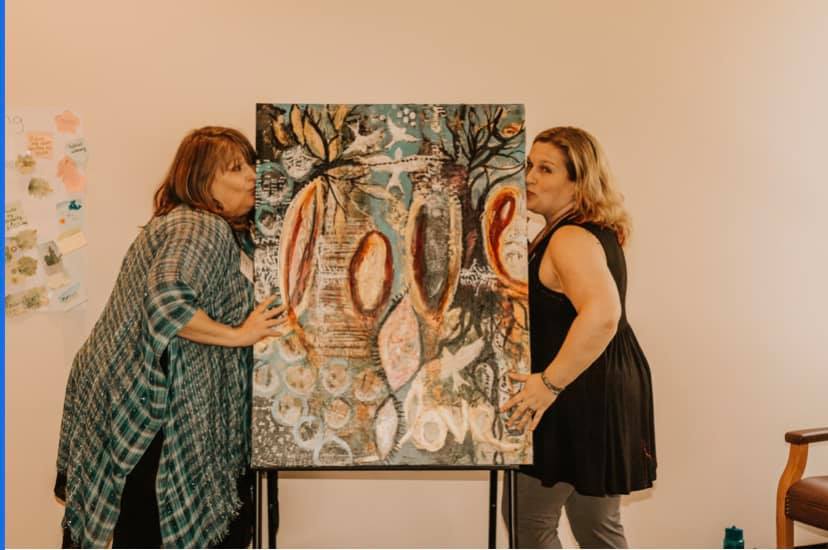

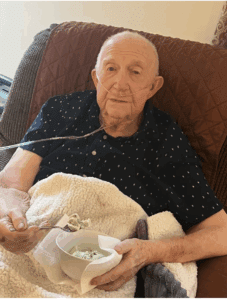


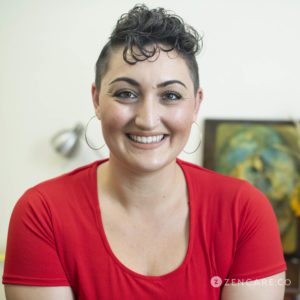


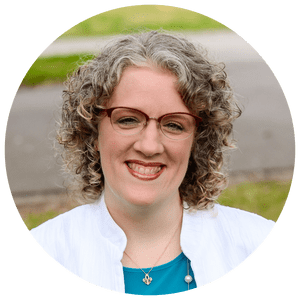

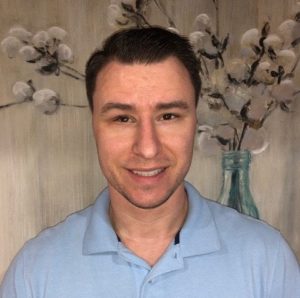
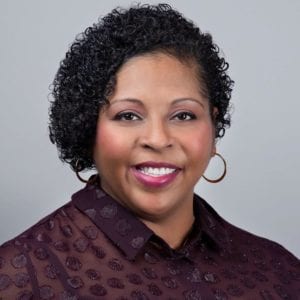
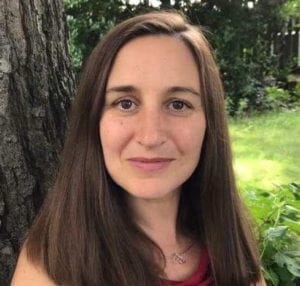

10 Responses
Reading this opened my eyes- once again I have not considered or ever heard of who is making decisions for what qualifies as a continuing Ed course. This sounds crazy. I’m sorry to hear what you had to go through and I loved the response of not even dignifying this with a response.
Judy
When did boards decide that fully licensed clinicians do not have the professional discernment to choose continuing education that meets their practices and people that they serve? I have tried to break into CE education and have been met with no way to do this without contracting with a CE company. Thank for outling how this works- this is the first account I have read anywhere that explains this.
Deep sigh. Yet another myriad of ways that capitalist patriarchical white supremicist systems get in the way of good in the world (because more good equals less of the aformentioned systems). So proud of your willingness to be a LOUD and BRILLIANT VOICE of reason! Keep singing at the top of your lungs and we’ll be your chorus!
I F*CKING LOVE THIS!!!
This article was very validating on my levels. I am a licensed professional counselor whose state board accepts any trainings certified by the APA. I spent close to 1200-1500 grand on a foundational DBT training only to discover that I was unable to receive continuing education credits since I was not a licensed psychologist, despite informing them that my board will accept trainings from any company accredited by the APA. Yes, I do understand the responsibility lies with me regarding confirmation that a training is willing to give CEUs, but I walked away feeling that the trainer’s and the field’s ‘commitment’ to providing high quality training for high-risk, suicidal populations to all levels of licensure to fall flat in service of bureaucracy and semantics.
I also resonated with your experiences of being invalidated by a state board, although in a different way. I am licensed from a state in the South. At the meeting in which it was announced I was licensed professional, a very proud moment for me, one of the board members made a disparaging comment about my name and the names of other Black professionals, stating “finally, an American name!” when she read a common and easily pronounceable name of a White professional. From that moment on, I felt that the board did not represent me and often felt that the few questions or comments I had for the board served as an annoyance to them and furthered my view (and the stereotype among professionals) that the board in general was to be avoided.
It never fails to hurt me when I am faced with the close-mindedness, myopic, unnecessarily conservative/administrative, and strangely xenophobic attitudes from the gatekeepers and leaders of our profession. I always expect so much more from us.
Thank you for continuing to speak up and creating spaces for us Dr Jamie!
Thank you for shedding light on the barriers hindering continuing education in the mental health industry. Addressing the red tape is crucial for ensuring accessibility and meeting the increasing demand for mental health workers. Your article highlights an essential aspect of sustaining a thriving mental health sector.
Gracias!! I appreciate you writing about this as I have often wondered about these entities. Thank you for sharing your experience and knowledge about this. I worked for 10 years in Illinois in nonprofits and now I’m in the Carolinas returning as a private practice EMDR therapist.
I totally agree. As an older therapist who has seen a change in focus throughout the educational system I am concerned that many thoughts and concepts that were more ‘freeing’ and ‘exploring your world’ are no longer considered appropriate. Experience is a great teacher and should be part of the learning process. When cultural, religious, social and economic variances are voiced without understanding the historical factors, we begin to loose a larger understanding of who we are.
As a trans LCSW looking at offering gender diversity trainings, this was so validating to read. I’ve felt so intimidated by the CEU approval process in thinking about how much I would love to offer trainings and guidance to other clinicians. I’ve also had this weird rule in my mind, that I need some sort of approval or training to teach based off lived experience, client experience, and my own personal research. I think part of this is due to the strong emphasis in our field of not going beyond your scope. I have spent hundreds of hours reading about gender and sexuality because that’s such a huge part of my and my clients’ lives; I totally have knowledge and wisdom to share with others in my field on those topics as a result. It’s not like there’s a gold standard, ‘complete this training and then you can train other folks on gender and sexuality!’, and I feel like that’s been part of my own white supremacy and pro-academia internal bias to unravel. Hopefully we can begin shifting out profession to be less gate-keepy around what is ‘good training’ and ‘effective therapy’ because what we’re doing right now isn’t working.
Mary Oliver’s question about how we choose to use our precious lives is a reminder that our time is valuable, and we must align our actions with what truly nurtures and fulfills us. Thank you for sharing such a heartfelt and honest reflection on your experience with professional committees and the challenges of trying to instigate change from within.